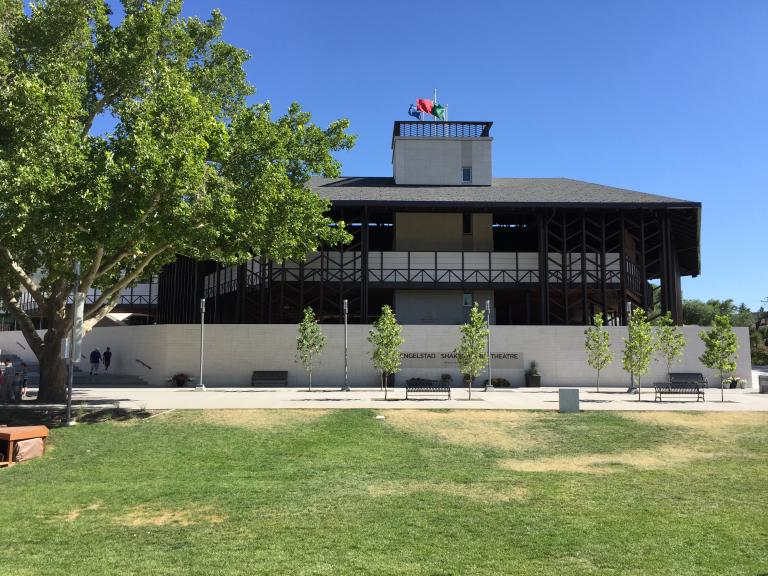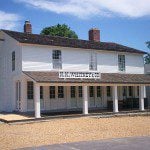
On Saturday night, my wife and I took in a very good Utah Shakespeare Festival production of The Merry Wives of Windsor. Set somewhere, I would guess, between 1895 and about 1920 — the era of “ragtime” — it used Shakespeare’s text (of course) but supplemented that with asides and with music from roughly the appropriate period.
***
I suspect that Brigham Young’s tastes in theater may have been more overtly didactic than mine are, and we certainly disagree on his distaste for tragedies, but I’m certainly grateful that he gave such strong support to drama from the very earliest days of Mormon settlement in Utah. (So, too, is my wife, the theater major.)
“If I were placed on a cannibal island and given a task of civilizing its people,” Brigham is said to have remarked, “I should straightway build a theatre.”
And, very plainly, history and his actions bear him out on that claim. Soon after they arrived in the Salt Lake Valley in 1847, the Latter-day Saints erected a temporary shelter made from tree boughs on a frame structure that came to be called “The Bowery.” It stood on the southeast corner of what we now know as Temple Square. The forerunner of the Tabernacle, it was used for religious services — but also for concerts, plays, and dances.
In 1853, not much more than five years after the arrival of the Mormon pioneers in the valley, Salt Lake City’s Social Hall was formally dedicated. The non-Mormon lawyer and federal territorial official Benjamin G. Ferris (1802-1891), a native of New York who was no friend to Mormonism, compared the theatrical performances held there favorably to dramatic presentations along the eastern seaboard.
Thereafter, in 1862, Brigham Young dedicated the Salt Lake Theatre, which was one of the finest theater buildings of its time anywhere in the United States.
“Upon the stage of a theater,” said Brigham, “can be represented in character, evil and its consequences, good and its happy results and rewards; the weakness and the follies of man, the magnanimity of virtue and the greatness of truth. The stage can be made to aid the pulpit in impressing upon the minds of a community an enlightened sense of a virtuous life, also a proper horror of the enormity of sin and a just dread of its consequences. The path of sin with its thorns and pitfalls, its gins and snares can be revealed, and how to shun it” (Discourses of Brigham Young, 243).
That’s certainly the case with The Merry Wives of Windsor, even though it’s not expressly didactic or preachy.
***
I’m confident that Brigham Young would have loved film, too, and seen its potential power for good.
Posted from Cedar City, Utah
















